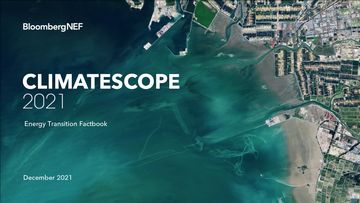Honduras
With a cumulative score of 1.73, Honduras ranks number 22 among emerging markets and number 49 in the global ranking.
- Emerging markets
- Americas
1.93 / 5
Power score
1.27 / 5
Transport score
Buildings score
Only 56 markets (28 emerging markets) are scored on the Buildings sector. See the full list on the methodology page.
Low-carbon strategy
Net-zero goal and strategy
Honduras has set neither a net-zero emissions goal nor a long-term carbon strategy.
Nationally Determined Contributions (NDC)
Since September 2015, Honduras has had in place a goal of cutting its CO2 emissions 15% by 2030 vs. a 2016 baseline across its energy, industrial, transportation and agricultural sectors. The commitment was made on the condition that wealthier countries will provide the support they promised to less developed nations under the 2015 Paris Agreement.
Fossil fuel phase-out policy
Honduras has no fossil fuel phase-policy in place.
Power
Power policy
Honduras has been planning to implement a net metering policy for the last few years but has not completed the regulations to do so. Once in effect, the policy would oblige distribution companies to purchase surplus renewable power from residential and commercial users and give discounts on their bills.
Decree 70-2007, published in June 2007, guarantees priority dispatch to electricity generated from clean sources. Renewable power is also exempt from income, import value and sales taxes.
Power policies
Power prices and costs
Electricity prices in Honduras jumped from 2018 to 2019, with commercial rates rising most sharply, from $169/MWh to $212/MWh. But from 2019 to 2020, commercial rates remained level at approximately $212.44/MWh. Residential prices also stayed flat 2019-2020 at about $161/MWh. Industrial prices slid just 0.99% to $135.52/MWh.
Power market
Honduras has total installed capacity of 2.8GW. In 2019, just under a third of the country’s power came from oil- and diesel-fired plants. Hydro accounted for 25% of generation, while renewables (biomass, solar and wind) were a combined 39.5%. Solar capacity has grown by 21% since 2015 to over 640MW in 2019. The Honduras wholesale market started operations in June 2019 and the country is part of the Central American Electrical Interconnected System (SIEPAC) meaning it is connected to El Salvador, Guatemala, Costa Rica, Panama and Nicaragua via transmission lines. Honduras is a net importer in the regional market.
From 2010-2019, Honduras attracted $2.7 billion in new clean energy investment, driven by $1.3 billion for solar from 2014-2019. These investments were boosted by a feed-in premium for renewables that came into force in August 2013. PV projects up to 300MW installed by July 31, 2015 were eligible to receive a base price for their energy equal to the short-term marginal cost plus $0.03/kWh plus 10%. However, this policy was cancelled in 2018 due to financial problems faced by state utility Empresa Nacional de Energia Electrica (ENEE).
Installed Capacity (in MW)
Electricity Generation (in GWh)
Utility privatisation
Which segments of the power sector are open to private participation?
Wholesale power market
Does the country have a wholesale power market?
Doing business and barriers
Market conditions for renewables developers in Honduras are not easy. ENEE has failed to pay a feed-in premium promised to solar plants commissioned by July 31, 2015 and this has undermined confidence. The utility says energy demand is growing and will rise 4% per year through 2030. The national electrification rate in 2019 stood at 82%.
There are limited formal barriers to renewables development in Honduras. PPAs with renewable energy generators last up to 20 years, but cannot be renewed following expiration.
The condition of the country’s state-owned utility presents significant uncertainty, however. ENEE faces serious financial problems and has renegotiated earlier feed-in premiums with domestic and foreign companies owning clean energy projects in Honduras. In late 2018, the government announced an agreement to renegotiate the contracts. However, only domestic companies accepted the $0.03/kWh tariff cut. Meanwhile, ENEE continues to grapple with financial challenges.
In addition, the Honduras transmission network remains shaky. On September 16, 2019, a blackout affected most SIEPAC countries and Mexico. The cause was said to be heavy storms in Honduras. The fragile conditions of Honduras’ and Nicaragua’s transmission systems led to nationwide four-hour blackouts in both countries.
Currency of PPAs
Are PPAs signed in or indexed to U.S. Dollars or Euro?
Bilateral power contracts
Can a C&I (Commercial and Industrial) customer sign a long-term contract (PPA) for clean energy?
Bilateral power contracts
Can a C&I (Commercial and Industrial) customer sign a long-term contract (PPA) for clean energy?
Bilateral power contracts
Can a C&I (Commercial and Industrial) customer sign a long-term contract (PPA) for clean energy?
Fossil fuel subsidies
Does the government influence the wholesale price of fossil fuel (used by thermal power plants) down through subsidies?
Fossil fuel taxes
Does the government influence the wholesale price of fossil fuel (used by thermal power plants) up through taxes?
Transport
EV market
The government has yet to implement any substantive policy support in this sector and the EV market remains at an early stage.
EV policy
In its NDC submitted in May 2021, Honduras stated that it wants to promote the use of low-emission transportation by 2030 through policies, strategies, regulatory frameworks, schemes and incentives, programs and projects. However, it offered no specifics on how it plans to implement its plans.
Transport policies
Fuel economy standards
Does the country have a fuel economy standard in place?
Buildings
Buildings market
In its NDC, Honduras said it plans to promote development of cities and communities, seeking to promote the protection of people, improve the quality of life, based on environmental, social and economic sustainability, capable of adequately meeting the basic needs of society.
Energy efficiency plan
Does the country have a national energy efficiency plan?
Energy performance standards
Are there minimum energy performance standards for buildings?
Buildings policy
The government has yet to implement any substantive policy support in this sector and the low-carbon heat market remains at an early stage.

